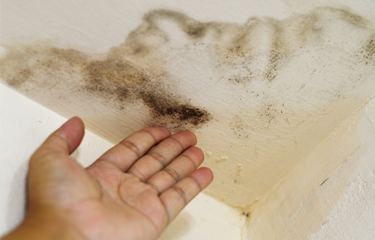
Buying: Knowing The Area
February 24, 2016
Warranty Deed vs. Quit Claim Deed
February 28, 2016
If you are getting involved with real estate you may have heard the term REO without really knowing what it refers to and how it could play a part in your current or future investments. REO is actually just an acronym that stands for real estate owned by the bank. REOs aren’t all that common because the bank doesn’t want them, but they do happen and you can really cash in as a result.
How a Property Becomes an REO
When a bank forecloses on a home or property owner, it is requires by law to hold a public foreclosure auction. Sometimes, because of lack of publicity or other reasons the home will not get any bidders at the auction, and the bank will end up owning the property. When the bank ends up owning the property it is then known as real estate owned by the bank, or an REO. An REO isn’t something that the bank wants, but many investors consider them gold mines.
Why the Home Wasn’t Bid On
There are a variety of reasons that a piece of property will become an REO. The mot common reason is that the property had very little equity in it. Many investors will not bid on a property that has less than 30% equity. In fact, statistics show that banks end up with most houses that do not have at least 30% equity. Many homes become REO when the property was simply in terrible condition. Most investors or individuals won’t invest in a home that is in poor condition because they see it as too risky. When a home that is in poor condition becomes an REO they are often gold mines waiting for the right investor to come along. Another reason that homes are not bid on at an auction is because there are IRS liens attached to the property. The problem with IRS liens is that there is a 120 period after the purchase of the home that the IRS has the right to take the property and refund the money that you have paid for it, but not the money you have put into the house updating it. For some investors, this 120 day redemption period is just too risky.
Why the Bank Wants To Get Rid Of REO’s
Banks do not want to own property, which is not what they are set up for. Basically, an REO is the sign of a bad loan that was given by the bank and the REO is a liability, not an asset. Every month that a bank owns a piece of property means they are losing money.
…here are a variety of reasons that a piece of property will become an REO. The mot common reason is that the property had very little equity in it. Many investors will not bid on a property that has less than 30% equity.
One of the biggest reasons that a bank does not want an REO is that their insurer will make them pay a full or partial settlement on the property. The bank is also aware that it doesn’t matter how much they sell the home for at an auction, they will probably suffer a loss. Banks are actually penalized for having too many REOs by the federal government, as they have to borrow funds from the government to stay in business. The federal government views the REO as a bad loan, and has a vested interest in making sure that a bank does not make too many bad loans. The bank will also have costs that are associated with the property such as taxes, insurance, sewer, water, and electricity bills, as well as homeowner association dues. The property must also be maintained and winterized, all of this costing the bank money.
Another problem for the bank is that it is not used to having to deal with the fixing and selling of property. Banks don’t have contractors and such on hand to do the repairs, so they are at the mercy of contractors that may charge them too much for the services due. It also takes time to make a house marketable, and all of this time they are paying the costs to upkeep the home, when they aren’t used to doing so. The bank will usually hand the big task of managing and selling an REO to someone that has another job, a more important job, and this will actually end up stressing out bank personnel until the home sells.
The bank will also pay to hire a real estate agent to sell the property once it has been repaired. While this may not seem like a big deal to most people, it can add up when the bank is expected to pay at least 6% of the sales price to a real estate agent for every REO! These costs really add up over time, so it’s plain to see why the bank simply does not want an REO.
Why Investors Are Attracted to REO’s
Most investors know that homes that need some work done to them usually are the biggest gold mines. Because of this, REOs are generally a very attractive business deal for these investors. The banks are willing to do just about anything to get rid of their owned property, which means that businesses or individuals can get the bank to make them a really nice deal so that they can buy the home, do the necessary repairs, and then sell the home if they choose, and still be able to make some money for themselves. For those that know how to do it right, there is a lot of money to be made in REOs.




